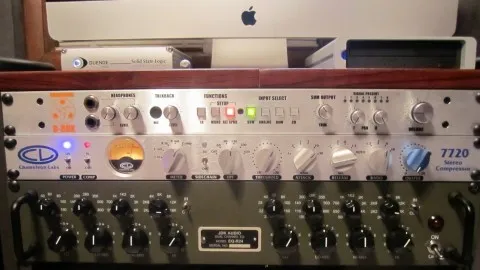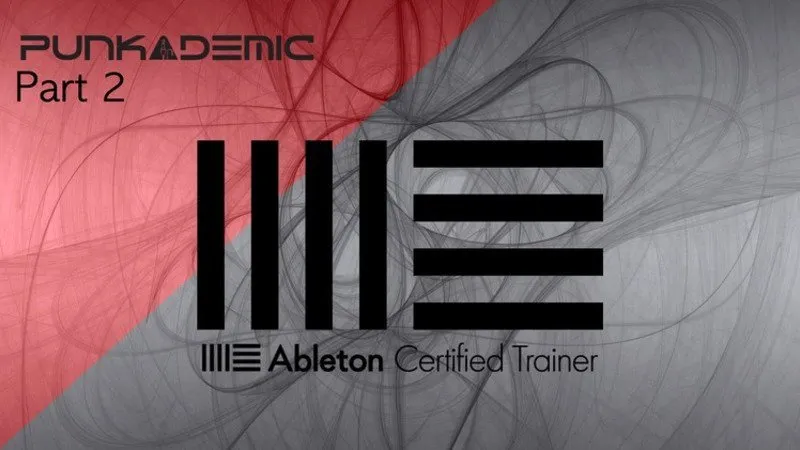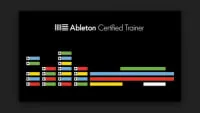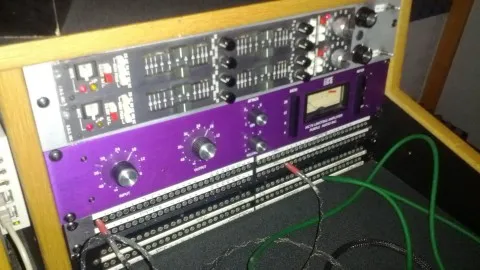
Free Audio Engineering Tutorial - audio engineering: EQ and Compression for beginners 
This free course provides an introduction to the fundamentals of audio engineering, including equalization and compression techniques. Perfect for beginners, it will help you gain a better understanding of the basics. ▼
ADVERTISEMENT
Course Feature
![]() Cost:
Cost:
Free
![]() Provider:
Provider:
Udemy
![]() Certificate:
Certificate:
No Information
![]() Language:
Language:
English
![]() Start Date:
Start Date:
Self Paced
Course Overview
❗The content presented here is sourced directly from Udemy platform. For comprehensive course details, including enrollment information, simply click on the 'Go to class' link on our website.
Updated in [March 06th, 2023]
This course provides an introduction to audio engineering for beginners. Participants will learn the basics of EQ and compression, including what an EQ and compressor do, what bands are on an EQ, and how to use them. Additionally, participants will gain an understanding of an EQ's range and when to employ EQ and compression. By the end of the course, participants will have a better understanding of audio engineering and be able to use EQ and compression to enhance their audio recordings.
[Applications]
After completing this course, students should be able to apply their knowledge of audio engineering to their own projects. They should be able to use EQ and compression to shape the sound of their recordings, and understand when to use each tool. Additionally, they should be able to identify the range of an EQ and understand the different bands available. With this knowledge, students should be able to create professional-sounding audio recordings.
[Career Paths]
1. Audio Engineer: Audio engineers are responsible for recording, mixing, and mastering audio for a variety of media, including music, film, television, and video games. They use a variety of tools and techniques to create the desired sound, including equalization (EQ) and compression. As technology advances, audio engineers are increasingly expected to be knowledgeable in digital audio workstations (DAWs) and other software, as well as traditional analog equipment.
2. Music Producer: Music producers are responsible for overseeing the production of music recordings. They work with artists to create the desired sound, and use EQ and compression to shape the sound of the recording. They also work with audio engineers to ensure that the recordings are of the highest quality. As technology advances, music producers are increasingly expected to be knowledgeable in digital audio workstations (DAWs) and other software, as well as traditional analog equipment.
3. Sound Designer: Sound designers are responsible for creating sound effects and soundscapes for a variety of media, including film, television, video games, and other interactive media. They use a variety of tools and techniques to create the desired sound, including equalization (EQ) and compression. As technology advances, sound designers are increasingly expected to be knowledgeable in digital audio workstations (DAWs) and other software, as well as traditional analog equipment.
4. Audio Technician: Audio technicians are responsible for setting up and maintaining audio equipment for a variety of media, including music, film, television, and video games. They use a variety of tools and techniques to ensure that the equipment is functioning properly, including equalization (EQ) and compression. As technology advances, audio technicians are increasingly expected to be knowledgeable in digital audio workstations (DAWs) and other software, as well as traditional analog equipment.
[Education Paths]
1. Bachelor of Science in Audio Engineering: This degree program provides students with a comprehensive understanding of audio engineering principles and techniques. Students learn how to use audio equipment, create sound effects, and mix and master audio recordings. They also gain knowledge of music theory, acoustics, and digital signal processing. This degree is ideal for those interested in pursuing a career in audio engineering, sound design, or music production.
2. Master of Science in Music Technology: This degree program focuses on the application of technology to music production and performance. Students learn how to use digital audio workstations, synthesizers, and other music technology tools. They also gain knowledge of music theory, acoustics, and digital signal processing. This degree is ideal for those interested in pursuing a career in music production, sound design, or audio engineering.
3. Master of Music in Audio Production: This degree program provides students with a comprehensive understanding of audio production principles and techniques. Students learn how to use audio equipment, create sound effects, and mix and master audio recordings. They also gain knowledge of music theory, acoustics, and digital signal processing. This degree is ideal for those interested in pursuing a career in audio engineering, sound design, or music production.
4. Doctor of Philosophy in Music Technology: This degree program focuses on the application of technology to music production and performance. Students learn how to use digital audio workstations, synthesizers, and other music technology tools. They also gain knowledge of music theory, acoustics, and digital signal processing. This degree is ideal for those interested in pursuing a career in music production, sound design, or audio engineering.
The development trends for these degree paths are increasing demand for audio engineers and sound designers, as well as the need for professionals with advanced knowledge of music technology. As technology continues to evolve, so too will the need for professionals with the skills to use and create new audio tools. Additionally, the demand for professionals with a deep understanding of music theory and acoustics will continue to grow.
Course Syllabus
Introduction
what is EQ
frequency bands
EQ frequency range
Controls on a EQ
When to use an EQ
What is a Compressor and How does it work
controls on a compressor
Vocals
Conclusion (EQ and compression tip)
EQ and Compression for beginners Quiz
Pros & Cons

Understands sound design

Confident with EQ and Compressor

Complete ideas about equalization and compression

Direct and easy to follow

Excellent practical introduction

Simple enough to understand

Very helpful course

Dull presentation

Struggling to keep intune

Not enough information
Course Provider

Provider Udemy's Stats at AZClass
Discussion and Reviews
0.0 (Based on 0 reviews)
Explore Similar Online Courses

Python for Financial Analysis and Algorithmic Trading

Understanding Gender Inequality - Online Course - FutureLearn

Python for Informatics: Exploring Information

Social Network Analysis

Introduction to Systematic Review and Meta-Analysis

The Analytics Edge

DCO042 - Python For Informatics

Causal Diagrams: Draw Your Assumptions Before Your Conclusions

Whole genome sequencing of bacterial genomes - tools and applications

Ableton Live 10 Part 2: Recording & Warping

Producing Drums with Ableton Live and Drum Rack


Start your review of Free Audio Engineering Tutorial - audio engineering: EQ and Compression for beginners